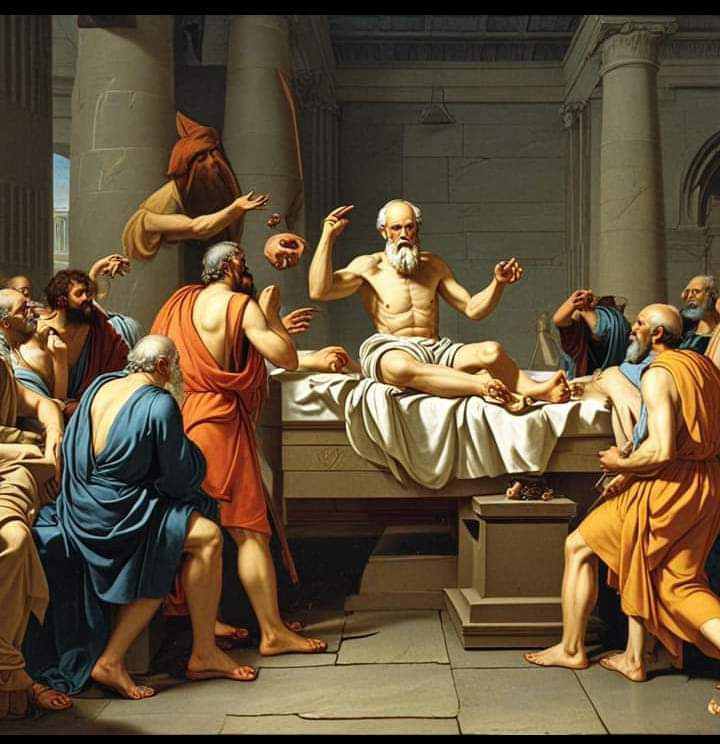### Context
1. **Athenian Democracy**:
- Socrates lived during the Golden Age of Athens, a period of cultural and intellectual flourishing. Athens was a democracy where citizens participated in decision-making through assemblies and courts.
2. **Socrates' Philosophy**:
- Socrates was a philosopher who questioned conventional wisdom, seeking truth and ethical clarity through dialogue and the Socratic method (elenchus), a process of questioning assumptions and beliefs.
### Trial of Socrates
1. **Accusations**:
- Socrates faced charges of impiety (not believing in the gods of the city) and corrupting the youth of Athens by encouraging them to question authority and traditional beliefs.
- These accusations stemmed from Socrates' interactions with young Athenians and his critiques of Athenian politics and society.
2. **Legal Proceedings**:
- The trial took place in the Athenian courts, with a jury of 500 citizens chosen by lot.
- Socrates defended himself eloquently during his trial, as recorded by his disciple Plato in his dialogue "Apology."
3. **Verdict and Sentencing**:
- Despite his defense, Socrates was found guilty by a narrow margin (around 280 to 220 votes).
- When asked for an alternative punishment, Socrates suggested he should be rewarded for his service to Athens rather than punished. However, he was ultimately sentenced to death.
### Death of Socrates
1. **Execution**:
- Socrates' death sentence was carried out by drinking a cup of poisonous hemlock (conium), a common method of execution in ancient Athens.
- He calmly accepted his fate, refusing opportunities to escape and adhering to the laws of the city-state he had spent his life inquiring into and critiquing.
2. **Philosophical Legacy**:
- Socrates' death became a symbol of intellectual integrity and the pursuit of truth, despite opposition from society and the state.
- Plato's dialogues "Phaedo" and "Crito" recount Socrates' final conversations with his friends and disciples, discussing themes such as the immortality of the soul and the obligations of citizens to the state.
### Impact
1. **Philosophical Influence**:
- Socrates' trial and death underscored the tension between individual conscience and societal norms, inspiring later philosophers to question authority and seek deeper understanding.
- His legacy influenced the development of Western philosophy, ethics, and political thought, shaping figures like Plato and Aristotle.
2. **Political and Cultural Significance**:
- The trial of Socrates highlighted the limits of Athenian democracy and the potential dangers of majority rule and populist sentiment.
- It raised enduring questions about the role of dissent and intellectual freedom in democratic societies.

No comments:
Post a Comment